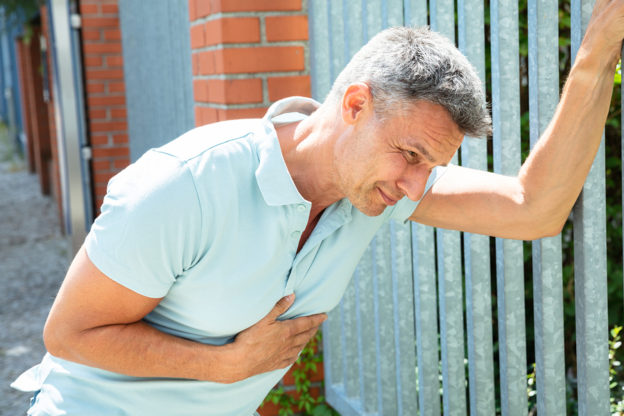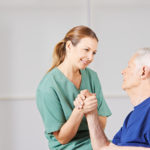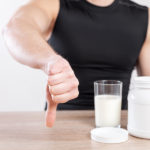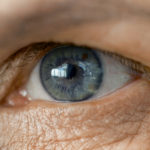By David Blyweiss, M.D., Advanced Natural Wellness
September 28, 2018
- Strokes aren’t restricted to the elderly
- Top seven causes of stroke
- 4 ways to identify stroke symptoms
One of the most alarming events that can happen in your life is to suffer a stroke. These “brain attacks” are a leading cause of death here in the U.S. And for people who survive a stroke, their risk of vascular dementia more than doubles.
Now, you might think only “old” people have to worry about a stroke. But sadly enough, a stroke can occur any time and at any age. In fact, about a quarter of them occur in people who under the age of 65.
But here’s the thing. Somewhere around 90% of all strokes are preventable!
That’s right. About 9 out of every 10 strokes can be avoided altogether. And today I’m going to give you all of the tools you need to counter your risk.
Top 7 Causes of Stroke
In my experience, most strokes occur when a blood vessel carrying blood to the brain is blocked. When this happens, the flow of oxygen rich blood is cut off from the brain and brain cells start to die. This, in turn, affects memory and muscle control.
Some of the top causes of stroke include:
Open your arteries, improve blood flow for a new health miracle...
Did you know your circulatory system has over 60,000 miles of arteries, veins and other blood vessels, if stretched end to end?
But as you age, your blood vessels undergo changes, which may cause them to stiffen, thicken and get clogged.
GOOD NEWS! Doctors have now identified a “Miracle Molecule” inside your arteries that helps OPEN your arteries and IMPROVE blood flow.
It’s what Dr. Valentin Fuster calls it, "One of the most important discoveries in the history of cardiovascular medicine."To you, that means...
- Healthy blood pressure
- Sharper mind and memory
- Skyrocketing energy and muscular strength
- Increased pleasure and passion in the bedroom
- Improved circulation to every cell and organ in your body
Go here to discover a new natural way to significantly boost the levels of this miracle molecule in YOUR body NOW!
High blood pressure: Not surprisingly, high blood pressure is the number one cause of stroke. It creates microscopic tears in the walls of your arteries. These tears eventually turn into rough scar tissue where sticky fats, plaques and cholesterol tend to accumulate.
This, in turn, leads to blockages, narrowing of the arteries and arterial stiffness that can prevent blood from getting to your brain.
As amazing as it might sound, it’s estimated that almost half of all strokes could be avoided with proper blood pressure control.
Too many salty foods: In small doses, sodium is good for you. In high doses, it will send your blood pressure soaring and increases your chances of a heart attack or stroke. This makes it extremely important to remove excess salt from your diet.
Sugar is your enemy: Sugar is just as bad as salt. It can damage your blood vessels and add to stroke risk. This is an especially important consideration for people with metabolic syndrome or diabetes.
I always tell my patients to read everything! That’s because both salt and sugar are often hidden in foods that sound like they’re extremely healthy, but aren’t. This makes it extremely important to read labels before you buy.
Being overweight or obese: Excess fatty tissue produces inflammation that can affect blood flow and increase your chance of blockages. This is especially true in men. Plus, increased weight, particularly in the abdominal area, tends to add to your risk of high blood pressure.
I’ve worked with enough overweight patients to know that getting those pounds off – and keeping them off – can be a huge challenge. But I have three super-simple tricks that can help you melt pounds away now and keep them off without starving yourself or exercising for hours on end.
Physical inactivity: These days we know that hours and hours of sitting are as bad for your health as smoking cigarettes. But regular physical activity can erase all those negative health outcomes.
Exercise increases production of nitric oxide, improves endothelial function, keeps your blood from getting sticky, lowers blood pressure and improves the way your body processes sugars. Plus, it reduces systemic inflammation, which provides a healthier atmosphere for your arteries.
The World's Quickest Solution for Ending Prostate and Urinary Misery
This has recently been revealed to be one of the only real breakthroughs in prostate health.
The seeds of a strange fruit (sometimes called "Chinese Apples") hold powerful phytonutrients that are a revolution in prostate health.
In fact, UCLA and Veterans Administration research have now proved this to be true.
Not only that, but it may be the worlds quickest solution for ending prostate misery.
Simply stated, these phytonutrients represent a huge step beyond beta sitosterol, saw palmetto, and other phytosterols alone.
Simply click HERE if you want to have fast prostate relief...restful, uninterrupted sleep...no more constant "urges to go"...enhanced virility...and optimal prostate support for life.
Believe me… you don’t have to spend hours in a gym or on a treadmill to get the health benefits associated with regular physical activity. You can get all the exercise you need each day with this extremely short and simple workout.
Smoking and over consumption of alcohol are also big factors when it comes to your chances of experiencing a stroke. This makes them two habits you need to try and break. And I know. They can be difficult. I recommend seeking help from your family, friends and community to get the support you need.
Act F.A.S.T!
If there is any chance you or a loved is experiencing a stroke, don’t take it lightly. Any delay in treatment can lead to permanent damage. It can take years of therapy to recover speaking skills and regain control of your body, not to mention brain function.
That’s the last thing anyone wants to experience when they have a full life ahead of them.
There’s an acronym. It’s called FAST. And you can use it to determine the warning signs of a stroke. This stands for…
- Facial drooping
- Arm weakness
- Speech difficulty
- Time to call 911
Source: ©2018 American Heart Association, Inc.
If you need help identifying these symptoms, there are some simple ways to check them.
A smile will quickly show if your face is drooping, because only one side of your mouth will be able to execute the smile. Raising both arms over your head will reveal any arm weakness (in either arm)… and speaking a full and coherent sentence can determine any speech difficulties.
For an extremely quick check of symptoms, try raising your arms while sticking out your tongue.
If you experience difficulty with any single one of these tasks, it’s time to call 911 without delay!
SOURCES:
Kuźma E, et al.Stroke and dementia risk: A systematic review and meta-analysis.
Alzheimer’s & Dementia: The Journal of the Alzheimer’s Association. Epub ahead of print.
O’Donnell MJ, et al. Global and regional effects of potentially modifiable risk factors associated with acute stroke in 32 countries (INTERSTROKE): a case-control study. Lancet. 2016 Aug 20;388(10046):761-75.
Sims NR, et al. Mitochondria, oxidative metabolism and cell death in stroke. Biochim Biophys Acta. 2010 Jan;1802(1):80-91.
Quinn TJ, et al. Sugar and stroke: cerebrovascular disease and blood glucose control. Cardiovasc Ther. 2011 Dec;29(6):e31-42.
Rhéaume C, et al. Adiposity assessment: explaining the association between obesity, hypertension and stroke. Expert Rev Cardiovasc Ther. 2011 Dec;9(12):1557-64.
Gallanagh S, et al. Physical Activity in the Prevention and Treatment of Stroke. ISRN Neurol. 2011; 2011: 953818.








